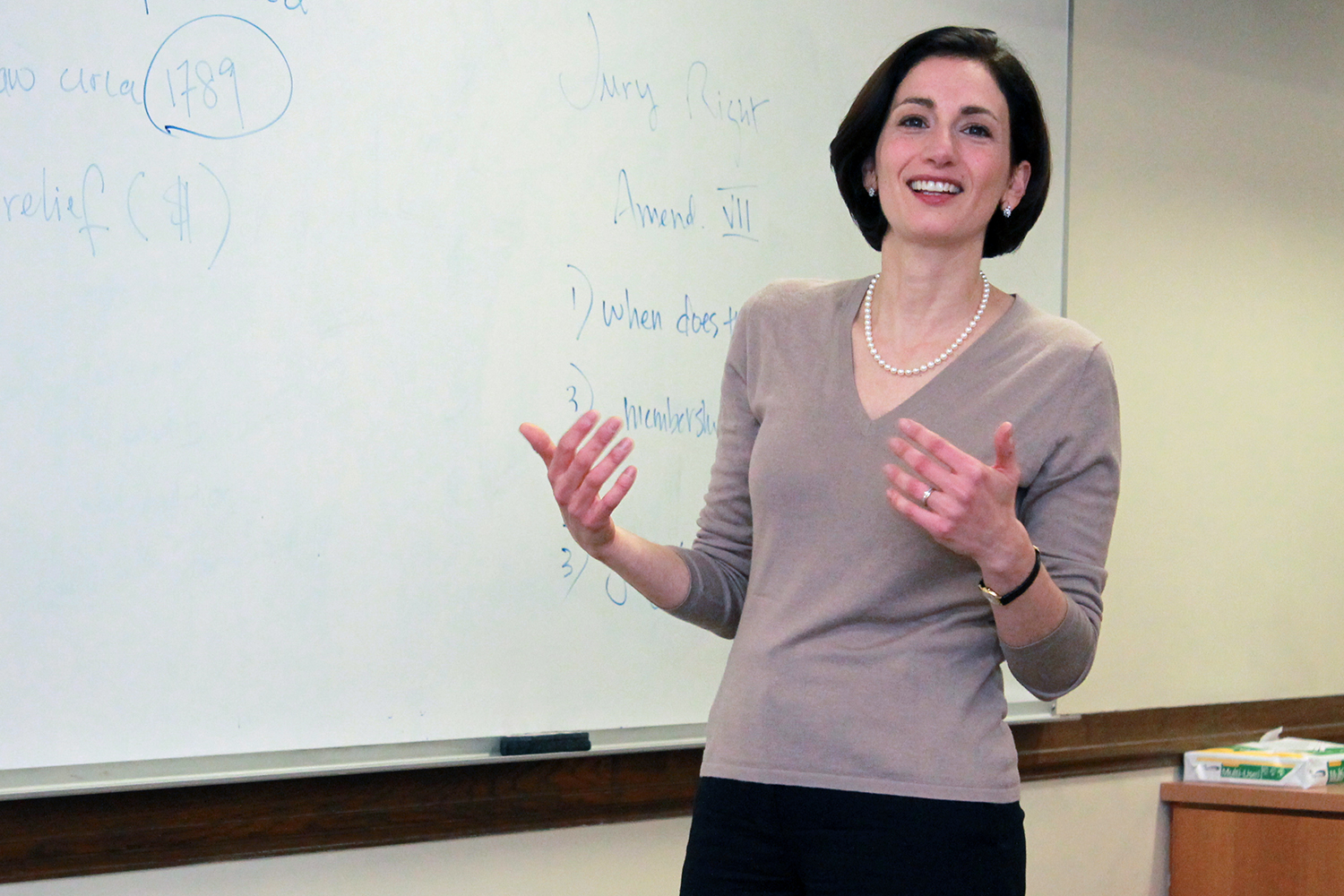UConn Law Professor Alexandra Lahav has been named a fellow at the Radcliffe Institute for Advanced Study at Harvard University
Lahav, the Ellen Ash Peters Professor of Law at UConn School of Law, will pursue a project entitled “Epidemiology and the Future of Tort Law.” She will explore how the study of epidemiology might provide insights for refashioning tort and remedies law to deal with twenty-first century problems, and why probabilistic approaches have not been adopted by courts to resolve mass tort litigation.
She will be among 50 fellows working in residence at Harvard in the sciences, social sciences, humanities, and arts at the institute in 2019-20. Fellows present lectures and exhibitions to the public, participate in cross-disciplinary study groups, and work closely with undergraduate Harvard students who serve as research partners.
Lahav is a nationally recognized expert on the civil justice system and tort law who teaches Civil Procedure, Torts, and Professional Responsibility. Her book, “In Praise of Litigation,” won the 2019 Pound Civil Justice Award and an honorable mention in the American Bar Association’s 2018 Silver Gavel Awards.
“This is a remarkable class of fellows,” said Radcliffe Institute Dean Tomiko Brown-Nagin, the Daniel P. S. Paul Professor of Constitutional Law at Harvard Law School and professor of history in the Faculty of Arts and Sciences. “Radcliffe’s Fellowship Program—a microcosm of the Institute—is a laboratory of ideas where scholars, artists, scientists, and practitioners draw insights from one another and generate new knowledge that spans disciplinary boundaries. I am extraordinarily excited to see what emerges from this incredible group of individuals in the year ahead.”
The Radcliffe Institute has awarded more than 900 fellowships since its founding in 1999. This year’s class represents just 3.7 percent of applicants.
The full list of fellows is online here.



